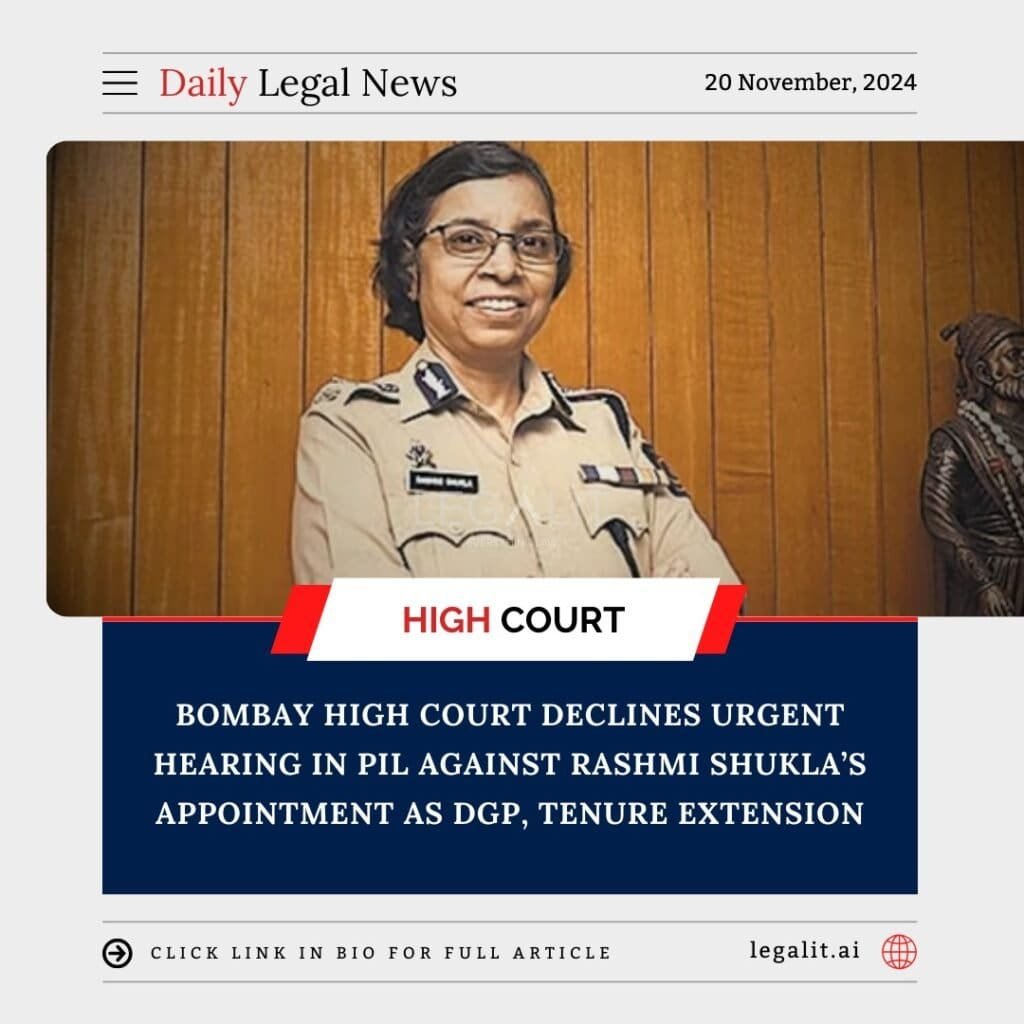
The Bombay High Court recently declined an urgent hearing in a Public Interest Litigation (PIL) challenging the appointment of Rashmi Shukla as the Director General of Police (DGP) of Maharashtra and her tenure extension. The petitioners questioned the legality of the appointment and the extension, raising concerns over constitutional and procedural violations.
Background:
Rashmi Shukla, a senior IPS officer, was appointed as the DGP of Maharashtra, and her tenure was extended for a certain period. A PIL was filed against the state government’s decision, alleging that the appointment and subsequent extension were in violation of established norms and procedures. The petitioners contend that the appointment was politically motivated and did not follow the due process of law.
Court’s Rationale:
While the petitioners sought an urgent hearing, the Bombay High Court observed that the matter did not warrant immediate intervention. The court emphasized that it would decide on the hearing of the PIL based on the standard procedures for listing cases, indicating that the urgency of the case did not merit an expedited process. The court’s decision reflects the need for careful consideration of legal issues rather than acting on expedited requests without thorough review.
Existing Measures:
The Maharashtra government has not yet made any public response regarding the PIL or the legal challenges surrounding Rashmi Shukla’s appointment. The petitioners are likely to continue their legal battle, awaiting a full hearing in the case, which may involve a deeper examination of the legal framework governing such appointments.
Conclusion:
While the Bombay High Court’s decision to deny urgent hearing may delay immediate legal action, it sets the stage for a thorough judicial review of the appointment and tenure extension of Rashmi Shukla as DGP. The outcome of the case will have implications for future appointments in the police force and the standards that govern such decisions in the state.